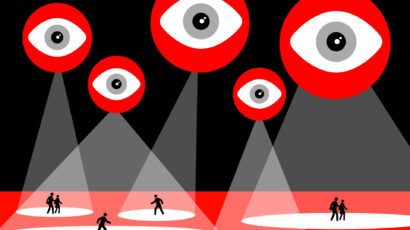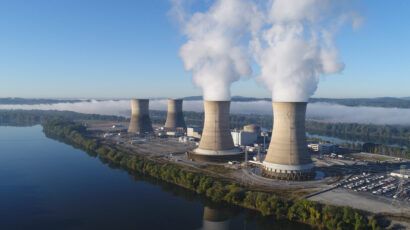The nuclear dogs that didn’t bark
By Hugh Gusterson | November 13, 2012
Gregory (Scotland Yard detective): “Is there any other point to which you would wish to draw my attention?”
Holmes: “To the curious incident of the dog in the night-time.”
Gregory: “The dog did nothing in the night-time.”
Holmes: “That was the curious incident.”
In the Sherlock Holmes story, Silver Blaze, the key to solving a mystery turns out to be identifying what did not happen (and, as so often with things that do not happen, had therefore been ignored).
Gregory (Scotland Yard detective): “Is there any other point to which you would wish to draw my attention?”
Holmes: “To the curious incident of the dog in the night-time.”
Gregory: “The dog did nothing in the night-time.”
Holmes: “That was the curious incident.”
When a prize-winning racehorse was stolen, the dog did not bark. Holmes realizes that the thief was, therefore, familiar to the dog, and he solves the mystery.
I recently thought of this story while listening to a talk by Stockholm University professor Thomas Jonter on why Sweden did not get nuclear weapons. Not long after World War II, Sweden set about developing a nuclear weapons capability. It developed its own heavy water nuclear reactor to produce plutonium, and it discreetly began exploratory work on a bomb design. In a context where Sweden, which was non-aligned, felt threatened by the Soviet Union, the plan was to build tactical nuclear weapons that could be fitted on Swedish airplanes. In 1957 and 1958, Sweden reached a point where it had a latent nuclear capability and had to decide whether to go ahead and develop actual weapons. Sweden’s prime minister decided to freeze the program. Ten years later, he effectively ended the program by signing the Nuclear Non-Proliferation Treaty.
That is, the very same prime minister — Tage Erlander — who gave birth to Sweden’s nuclear program, also buried it. According to Jonter, he did this partly because of implicit security reassurances from the United States, partly because of divisions in his own inner circle about going nuclear, and partly because, having had a decade or more to think about it, he had changed his mind about the merits of nuclear weapons.
Erlander made a vital contribution to the cause of nuclear disarmament but, despite the fact that he led his country for an extraordinary 23 years, most Americans have never heard of him. If he had decided to take Sweden nuclear in the late 1950s, I’m sure a lot more of us would know his name. The people who are the subjects of nuclear history books are those who make bombs, drop bombs, and preside over bomb build-ups. Looking at my bookshelf, what do I see? Biographies of J. Robert Oppenheimer (not one, but two) and Leslie Groves, the leaders of the Manhattan Project, as well as biographies of Herman Kahn, Edward Teller, Richard Perle, Admiral Hyman Rickover, and General Bernard Schriever — prophets of nuclear escalation. But no biographies of the anti-nuclear activists Norman Cousins, Linus Pauling, Randall Forsberg, Helen Caldicott, or E.P. Thompson.
My bookshelf also holds histories of the American nuclear weapons program, the Soviet bomb program, the British nuclear weapons program, the Chinese nuclear weapons program, the Israeli nuclear weapons program, the Indian nuclear weapons program, and the Pakistani nuclear weapons program (though, curiously, not of the French program). But the histories that interest me seem not to exist. Where is the book explaining how and why Ukraine decided to give up the 1,900 nuclear warheads it acquired when the Soviet Union disintegrated in 1991? Author David Albright published an interesting overview on South Africa’s nuclear weapons program in a 1994 issue of the Bulletin, but where is the book explaining why South Africa decided to dismantle its stockpile of six nuclear weapons and how it did so in such a way that the nation’s nuclear weapons program could not be reconstituted? Where is the book explaining how and why Brazil and Argentina, both well advanced toward a nuclear weapon, were able to freeze and dismantle their nuclear weapons programs in the 1980s? And where are the books detailing Taiwan’s decision to abandon its nuclear weapons program in the 1970s or Australia’s exploration, and final rejection of, the nuclear option in the 1960s?
Last month was the 50th anniversary of the Cuban Missile Crisis. For five decades we have been hearing endlessly about the sangfroid of the Kennedy brothers and their advisers who stared down the Soviets without starting a nuclear war. But it turns out that we may owe our survival not to the ill-advised alpha male brinksmanship of the Kennedys, but to an unsung hero in the Soviet navy: While the US Air Force was recklessly dropping depth charges on his submarine to force it to surface, Soviet naval officer Vasili Arkhipov blocked the submarine captain from firing a nuclear torpedo. You may be here today because of Arkhipov, someone whose name is unknown to most of us.
Human beings live by stories. They make up the unseen narrative architecture of our world, teaching us what to pay attention to, who to admire and revile, how to feel. With regard to nuclear weapons, we keep telling ourselves the same story over and over: the epic story of the people who figured out how to make nuclear weapons and threaten people with them. We seem to have much less interest in the story of those individuals who valiantly struggled against the development of nuclear weapons or those nations who abjured nuclear weapons. Of course, the people who write about nuclear weapons mainly come from the tiny deviant minority of countries that acquired nuclear weapons. These authors’ interests are surely shaped by their nations’ membership in this select club.
Surely Sweden, South Africa, Ukraine, Brazil, Argentina, and Australia get left out of our nuclear storytelling because, as Jonter suggested in his talk, they do not fit with the dominant international relations philosophy of our age: realism (as its adherents self-servingly call it). Realist theory would suggest that Sweden, non-aligned and nervous of its heavily armed Soviet neighbor, should have armed itself up to assure its security. Instead, having concluded that it could easily acquire nuclear weapons if it so desired, Sweden decided it would be more secure if it formally foreswore the nuclear option.
Jonter whetted my appetite for a more detailed account of Erlander’s decision. I hope one day to read a good book about it. The realist narrative will not loosen its grip on our imagination until we have as many stories about the Erlanders of the world as we have about the Oppenheimers and the Kurchatovs.
Editor’s note: This article was updated on November 14, 2012.
Together, we make the world safer.
The Bulletin elevates expert voices above the noise. But as an independent nonprofit organization, our operations depend on the support of readers like you. Help us continue to deliver quality journalism that holds leaders accountable. Your support of our work at any level is important. In return, we promise our coverage will be understandable, influential, vigilant, solution-oriented, and fair-minded. Together we can make a difference.
Topics: Columnists, Nuclear Weapons















